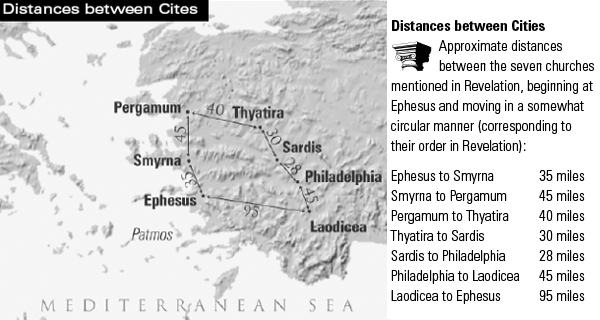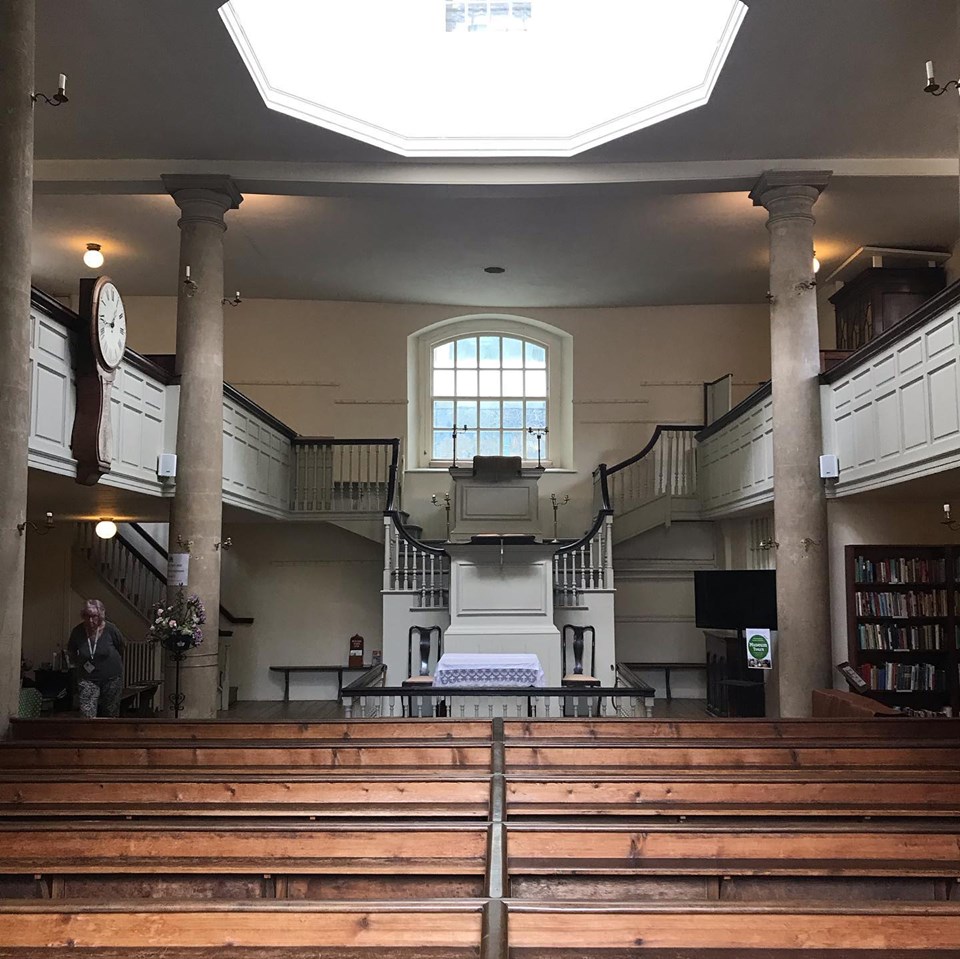Call for Parents and Caregivers to Have Time of Uninterrupted Play with Their Children
As a Board Certified Licensed Professional Counselor with nearly 20 years of experience in the field of play therapy, I understand the vital importance of play in the life of a child. With the COVID-19 pandemic which has swept the world, our children are being exposed to stressors and events that no child should ever have to endure. Children need play in their lives now more than ever before. Play is their only way to communicate and to process these traumatic times. A time of play allows for children to increase their emotional strength and reduces stress which in turn increases our children’s immunity defenses.
It is for this reason that I feel the urgency to call all parents and caregivers to set aside a minimum of 45 minutes to 1 hour during the day to play with their children. This structured time should meet the following guidelines:
- If possible should be one parent with one child at a time even if you have to limit play to only 30 minutes
- Play time is uninterrupted with no texting, social media, online surfing or phone use of any type
- Should be in a safe place
- Parents and caregivers need to offer a time which is non-judgmental in the parameters of protection
- Needs to be led by child and not adult, offering no suggestions about what or how to play unless asked from child
- Do not interrupt the child’s process by being impatient for child to finish tasks at hand
- This is not a time for teaching. It is a time of reflecting and empathetic listening of feelings.
- Repeat back to the child their actions during play instead of offering your biased insight.
- Listen to what your children are telling you via their play
- Provide unconditional love and support
There is always time for play. It should not be underestimated. During this time of crisis it is a basic necessity and will strengthen our children. We will make it through this together.
– K. Donev, LPC/MHSP, NCC
We were made for these times
We were made for these times!
We know how to connect – whether in person or through phones and computers.
We know how to listen – to the stated message and to what is not said.
We also know the importance of responding to that unexpressed need.
We know how to observe – to see the fleeting worry or tender courage in someone’s eyes.
We know how to hope – to genuinely believe in our collective goodwill and shared humanity.
And, as you know, we know these things deeply and well – long before a contagious new virus arrived and disrupted our families and daily routines, we knew the powerfully contagious impact of relationships, positive emotions, and prayer!
Now, we want each of you to hear how much each of you is held in our hearts – for the work you do and, most importantly, for who you are in your families, communities, and the world.
Together we will remember the most vulnerable – near or far – and with creativity, determination, and compassion we will write a story of resilience, wholeheartedness, and collective resolve.
A story of and for these times.
We believe in you. Thank you for your continued prayers of support.
Today We are All Rodney Howard-Browne
“…Then they came for the Jews,
and I did not speak out—
Because I was not a Jew.
Then they came for me—
and there was no one left to speak for me.”
~Rev. Martin Niemöller
Pastor Rodney Howard-Browne was arrested for having church on Sunday.
The charges: unlawful assembly and a violation of health emergency rules.
The state administrative order issued restriction on all “public or private gatherings, including community, civic, public leisure, faith-based events…” The “safer at home” allowed leave only for essential work or to pick up food and medication.
For us Pentecostals, going to church is like going for food or medication. Our supernatural healing proceeds from the atoning work of Christ. Our gathering together represents the resurrection of His body from the dead and our own resurrection from all disease, sickness and even death. It is a spiritual self-fulfilling need guaranteed in the Constitution: Congress shall make no law respecting an establishment of religion, or prohibiting the free exercise thereof; or abridging the freedom of speech, or of the press; or the right of the people peaceably to assemble, and to petition the Government for a redress of grievances. Yet, during this state of emergency, both second degree misdemeanor charges somehow prevailed over the First Amendment.
Now, I can understand if many do not like Rev. Browne’s approach or praxis. I like him as much as the next preacher or practitioner of theology. But the seven principles of the Constitution still stand and right after federalism and republicanism it still reads individual rights.
In America where until today, Romans 13 carried a much different interpretation than when cited by communist agents in China, North Korea, Eastern Europe and beyond. And where since July 4, 1776 the Biblical imperative “Honor the King” aligns with Paul’s “bond servant of Jesus Christ,” meaning: not a slave to any earthly king, empire or any other new world order. For before anything else, every ambassador of the Kingdom of Heaven is accountable first to the Heavenly Call.
It is in this sense that today we are all Rodney Howard-Browne! If not, tomorrow we all could be arrested for having church on Sunday.
When the Church Process Hurts our Children
Policy and procedure and process are not to be feared. Without regulation, disorder and self-empowerment become a dangerous reality. However, can we truly hear from God when we become victim to the Process; when we hide behind procedure so our earthly agenda can be met? The voice of the Process can be so overwhelming that it overshadows our judgment for Truth. Dollar signs and numbers begin to replace genuine salvation and genuine miracles and genuine Holy Ghost baptism. We become too concerned with following procedure all while hurting our brothers and sisters and our spiritual mothers and fathers. We do so with no remorse because ultimately we were faultlessly just following protocol. Nevertheless these people have a voice to process events and forgiveness can be extended in which healing can occur.
But unfortunately, the ones which we always disregard while following the Process are the little ones that do not have a voice. So I speak for the children of the church who become the real victims to the Process. I speak for the ones who remain on the sidelines in the shadows under the pews; the ones who cry out for justice with their actions because this is their only way to be heard. Acting out is their way of screaming to anyone who will hear, “Don’t forget me in your Process”. Their tears say, “Stop with the politics”. I also speak for the unborn children of an infertile womb who desire to be born into unity and love. Please do not leave our innocent heirs without a place to worship, without a pastor to lead them into God’s presence and for some, without a desire to even go to church. Is the Process, with the illusion of democracy that divides, worth loosing our children in the midst? Join in saying, “No” with our actions.
-K. Donev, LPC/MHSP, NCC
Appreciating the Simple Things in Life
 Roasting chestnuts over an open fire and Jack Frost nipping at your nose is a comforting carol which brings many pleasant feelings around the holidays. These are two features, which are not only common to the States, but to Bulgaria as well. This is the season of chestnuts being roasted, however it is not like we picture being over a cozy fire place in a warm home. In Bulgaria it would be on the street side to sell in order to bring in some income for your family. And the Jack Frost is not just a nip for some, but it is a bone chilling cold due to not being able to afford the electric bill.
Roasting chestnuts over an open fire and Jack Frost nipping at your nose is a comforting carol which brings many pleasant feelings around the holidays. These are two features, which are not only common to the States, but to Bulgaria as well. This is the season of chestnuts being roasted, however it is not like we picture being over a cozy fire place in a warm home. In Bulgaria it would be on the street side to sell in order to bring in some income for your family. And the Jack Frost is not just a nip for some, but it is a bone chilling cold due to not being able to afford the electric bill.
For some, there will be no gift under the tree and for others there will not even be a tree. This is not said to bring you sorrow, but for you to appreciate the simple things in life. Enjoy family, friendships, a warm home, a hot meal, your health. Enjoy the time the Lord has given you and use it for his Glory and not for bickering or complaining over the small angst.
Don’t loose sight of the true meaning of Christmas. Christmas is not about the material, but it is about the spiritual. It is about the birth of our Lord and Savior even though our politically correct society wants to get ride of the “Christ” in “Christmas.” If it were not for His birth, He would not have been able to die for our sins. This remission of sin is the ultimate gift this Christmas season for it is through this act that we are able to have eternal life if we only ask.
So when you wake up on the 25th begin your day not consumed with what you didn’t get or what didn’t happen to your liking, but in silence remembering the silent and holy night over 2000 years ago. Remember those less fortunate in order not to take for granted with what you have been blessed. And most of all thank Him for His gift to you. Let these thoughts bring you comfort this holiday season.
Merry CHRISTmas 2009
From all of us in Bulgaria!
30 Years after Communism…
The Fall of the Berlin Wall was on the evening of November 9, 1989

30 years in 60 seconds at the red-light…
I’m driving slowly in the dark and raining streets of my home town passing through clouds of car smoke. The gypsy ghetto in the outskirts of town is covered with the fog of fires made out of old tires burning in the yards. And the loud music adds that grotesque and gothic nuance to the whole picture with poorly clothed children dancing around the burnings.
The first red light stops me at the entrance to the “more civilized” part of the city. The bright counter right next to it slowly moves through the long 60 seconds while tiredly walking people pass through the intersection to go home and escape the cold rain. The street ahead of me is already covered with dirt and thickening layer of sleet.
This is how I remember Bulgaria of my youth and it seems like nothing has changed in the past 30 years.
The newly elected government just announced its coalition cabinet – next to a dozen like it that had failed in the past two decades. The gas price is holding firmly at $6/gal. and the price of electricity just increased by 10%, while the harsh winter is already knocking at the doors of poor Bulgarian households. A major bank is in collapse threatening to take down the national banking system and create a new crisis much like in Greece. These are the same factors that caused Bulgaria’s major inflation in 1993 and then hyperinflation in 1996-97.
What’s next? Another winter and again a hard one!
Ex-secret police agents are in all three of the coalition parties forming the current government. The ultra nationalistic party called “ATTACK” and the Muslim ethnic minorities party DPS are out for now, but awaiting their move as opposition in the future parliament. At the same time, the new-old prime minister (now in his second term) is already calling for yet another early parliamentarian election in the summer. This is only months after the previous elections in October, 2014 and two years after the ones before them on May 2013.
Every Bulgarian government in the past 30 years has focused on two rather mechanical goals: cardinal socio-economical reforms and battle against communism. The latter is simply unachievable without deep reformative change within the Bulgarian post-communist mentality. The purpose of any reform should be to do exactly that. Instead, what is always changing is the outwardness of the country. The change is only mechanical, but never organic within the country’s heart.
Bulgaria’s mechanical reforms in the past quarter of a century have proven to be only conditional, but never improving the conditions of living. The wellbeing of the individual and the pursuit of happiness, thou much spoken about, are never reached for they never start with the desire to change within the person. For this reason, millions of Bulgarians and their children today work abroad, pursuing another life for another generation.
The stop light in front of me turns green bidding the question where to go next. Every Bulgarian today must make a choice! Or we’ll be still here at the red light in another 30 years from now…
Ministry by Walking Around and the Network of Seven Churches of Revelation
Ministry by Walking Around and the Network of Seven Churches of Revelation
Although the Book of Revelation has been vastly studied and interpreted throughout church history, usually the focus is on one major issue within the text, namely, the role and future of the church. The main reason for this has been the in-depth prophetic and pastoral messages to the Seven Churches.
The value of the messages to the Seven Churches of Revelation is constituted by the fact that they are the last recorded Biblical messages to the Christian Church.[1] The letters to the Seven Churches obviously do not contain all of the usual elements used in the New Testament epistolary form. It is generally accepted that they were written as an application of the Revelation context and not as individual messages to the churches.
This contextual connection between the seven letters suggests a network of inter-church communication which was established between the seven churches. Several common elements are obvious from the text, the most obvious is their common geographical location as shown in Figure 1.
Figure 1: Distances between the Seven Cities of Revelation
The addressed churches are located clockwise, almost like they are forming a strategic circle of ministry.[2] Most churches are located thirty to forty miles from one another, which perhaps was the possible daily limit for traveling during that time. The shape of the circle of ministry, based on the order in which the churches were addressed, suggests a method of managing known today as Management by Walking Around (MBWA). The example in Revelation not only presupposes such methodology, but purposefully gives its clockwise direction in relation to the location of origin of the letters from the Island of Pathmos.
The purposeful positioning of the churches provided a common network (circle of ministry). It is also obvious from the text that at the time of writing, simplicity and democracy in organization were characteristics of the New Testament church government.[3] In the context of networking, each church maintained its own individuality because it is addressed separately in the text.[4]
Furthermore, the seven churches shared a common context of ministry in the area of Asia Minor which consisted of a great mixture of languages, customs and religions. All of the seven churches were located in cities which were under Roman rule and combined the customs of Roman, Greek, Assyrian, Persian, Babylonian, Egyptian and Jewish cultures as well as the various languages and dialects within them. The commonality in the context of ministry continued with the presence of numerous religious groups, cults, sects and gilds which were closely interwoven with civil affairs. Universal citizenship, universal religion, and a universal church were all ideas for which the Roman Empire was beginning to prepare. In such context, the seven churches shared a common goal of ministry, namely, spreading the Christian message.[5]
The seven letters were inspired by one occasion and one purpose as a tool for inter-church networking.[6] The message was not sporadic or spontaneous but thoughtfully planned and designed for each of the churches, based on an in-depth knowledge of the individual problems, members and solutions for future development.[7] The text demonstrates a common structure within the church illustrated by the common structure shared by each message. The letters reveal that the congregations shared similar practices of worship, ministry and teaching which were accompanied by problems and persecution.
A significant part of the common structure was the leadership because each church had a divinely-appointed messenger,[8] addressed by a common “divinely-charged”[9] network elder, who received a transmitted divine message. Such process shows that the networking was done by means of communication, of which the epistolary form is also proof.[10] The written text was only a formal documentary or a contract of the holistic communication accomplished through various multimedia means including those that relied on audio, visual and other senses. It constructed a mystical, divinely-inspired, supernatural and non-virtual reality which transformed the recipient of the message in the same way it did the messenger. Through this means, the network communication was not a miscommunication, but rather an authentic translation from the divine source to the very members of the congregations.
This form of communication was absolutely necessary for the common context of ministry in which the seven churches operated. This common context was the earth, not heaven,[11] and their common goal was to conquer.[12] Yet, at the same time the text is undisputable in that each church contained people prepared to conquer. This fact makes the victory of the church inevitable. Thus, while the churches are dealing with various problems and persecutions, they are already conquerors.
This observation brings the reader to the final commonality which the seven churches share; namely, that besides the earthly network of ministry there is another greater, divine, heavenly network which is in control. Such a conclusion is obvious from the fact that all of the churches without exception are known to the sender of the messages.[13] Their problems are relevant, criticism and encouragement which are prophetically delivered solutions are divinely provided and conquest of the church over the problems is definite and inevitable. This is undisputable proof that a God-centered New Testament networking of churches is the dependable and enduring model for both ministry networking and church government. Precisely this heavenly network is the supernatural source of the unique approach through which problems of the churches are to be solved. Thus, in addition to a common present reality, the churches share a future earthly applicability of the paradigm of ministry which makes their message relevant today.[14]
[1] Wade H. Horton, Lectures on the Seven Churches (Cleveland: Pentecostal Resource Center, n/a), 6.
[2] Henry M. Morris, The Revelation Recorded (Wheaton: Tyndale House Publishers, 1987), 66. Merril Tenney, Interpreting Revelation (Grand Rapids: Wm. B. Eerdmans Pubslihing Co., 1957), 50. For an in-depth discussion on the geographical location of the Seven Churches, its significance for the circulation of the letters and the leadership organization see William M. Ramsey, The Letters to the Seven Churches (Grand Rapids: Baker book House, 1979), 186.
[3] McDowell, 38.
[4] McDowell, 37.
[5] Ramsey, 120-21.
[6] Ramsey, 40.
[7] Ramsey, 39-40.
[8] Bruce M. Metzger, Breaking the Code (Nashville: Abingdon Press, 1993), 30. Ramsey, 69, 74ff.
[9] Ramsey, 80.
[10] McDowell, 37.
[11] Metzger, 29.
[12] Metzger, 30.
[13] Wade Horton, Seven Golden Candlesticks (Cleveland: Pathway Press, 1974), 72.
[14] Edward A. McDowell, The Meaning and Message of the Book of Revelation (Nashville: Broadman Press, 1951), 35. Clovis G. Chappell, Sermons from Revelation (New York: Abingdon-Cokesbury Press, n/a), 59.
Set yourself on fire…
New Wesley Room at Bristol
Here is a bit more about the building from the Methodist Heritage Organization:
George Whitefield invited John Wesley to preach outdoors for the first time to the miners of Bristol in 1739. Within a few weeks’ work started on building the New Room as a meeting place for two of the religious societies in the city, thus creating the world’s first Methodist building.
The current building dates from 1748 when the New Room was doubled in size. Its lower floor became known as John Wesley’s Chapel. It is still in regular use for worship as well as being used for cultural and educational activities and exhibitions. Upstairs John Wesley created twelve rooms around a beautiful central octagonal window. These provided accommodation for himself and any visiting preachers assigned to the Bristol circuit. They now contain a highly interactive Museum devoted to telling the story of John and Charles Wesley and the relevance of their work today.
Being well placed in the heart of the city, the New Room became a center for the Wesleys’ work in Bristol. It was where John’s strong sense of social justice was first expressed. The New Room became a base for running a school for the poor, for providing food and clothes to the needy, for offering free medical care to the sick, and for helping those in the nearby prison. It was also the first place to use John Wesley’s ‘class’ system, where members were divided into sub-groups for mutual support and development. The New Room has been described as ‘the cradle of Methodism’.
The New Room was one of John Wesley’s three key centers. Many of the annual conferences were held there, including the one that first created Methodist circuits. Bristol’s trading links encouraged the growth of American Methodism. Thomas Webb, Francis Asbury, and others committed themselves to working there and sailed from nearby.
Encouraged by the Diary of JOHN WESLEY
O HOLY GOD we, have come to a point where
pastors text and post on facebook during sermon hour while thousands are going to hell in a hand basket while listening to a sermon
teachers be sipping a beer with friends on Saturday night and get up to teach Sunday school on Sunday morning still with alcohol on their breath
seminary professors teaching it is OK to drink in the Bible during the so called Theology on Tap meetings in a local pub
lonely pastors sitting in their cars shooting whiskey in the darkness of the church parking lot after preaching 2-3 services on Sunday
preachers are concerned with every social, political and cultural issues except the salvation of eternal human souls
We read the story in Wesley’s journal:
Sunday, 7.-–I preached again at St. Lawrence’s in the morning, and afterward at St. Katherine Cree’s Church. I was enabled to speak strong words at both; and was therefore the less surprised at being informed that I was not to preach any more in either of those churches.
The following weekend – Sunday, 14.–I preached in the morning at St. Ann’s, Aldersgate; and in the afternoon at the Savoy Chapel on free salvation by faith in the blood of Christ.
I was quickly apprised that at St. Ann’s, likewise, I am to preach no more.
I preached at St. John’s, Wapping at 3PM and at St. Bennett’s, Paul’s Wharf, in the evening.
At these churches, likewise, I am to preach no more
THEN HE WRITES:
Monday, Tuesday, and Wednesday, I had continual sorrow and heaviness in my heart.
BUT THEN Wednesday, May 24.– about five this morning that I opened my Testament on those words
“There are given unto us exceeding great and precious promises, even that ye should be partakers of the divine nature” [II Peter 1:4].
Just as I went out, I opened it again on
those words, “Thou art not far from the kingdom of God” [Mark 12:34].
In the afternoon I was asked to go to St. Paul’s. The anthem was, “Out
of the deep have I called unto Thee, O Lord: Lord, hear my voice. Oh,
let Thine ears consider well the voice of my complaint
“I Felt My Heart Strangely Warmed”
In the evening I went very unwillingly to a society in Aldersgate Street where one was reading Luther’s preface to the Epistle to the Romans. About a quarter before nine, while he was describing the change
which God works in the heart through faith in Christ, I felt my heart strangely warmed.
I felt I did trust in Christ, Christ alone, for salvation; and an assurance was given me that He had taken away my sins, even mine, and saved me from the law of sin and death.
I began to pray with all my might for those who had in a more especial
manner despitefully used me and persecuted me.
I then testified openly to all there what I now first felt in my heart
Banned from most churches in the area, he meets with Whitfield who has just returned from America
Whitfield tells him they can minister in the fields like they did in America
Thursday, 29th –-I left London as I could scarcely reconcile myself at first to this strange way of preaching in the fields, of which Whitfield set me an example on Sunday;
I had been all my life (till very lately) so tenacious of every point relating to decency and order
that I should have thought the saving of souls almost a sin if it had not been done in a church.
Monday, 2.--At four in the afternoon, I submitted to be more vile and proclaimed in the highways the glad tidings of salvation, speaking from a little eminence in a ground adjoining to the city where gathered 3,000 people
Sunday, 8.--At seven in the morning I preached to about a thousand persons at Bristol, and afterward to about fifteen hundred on the top of the Mount in Kingswood.
Tuesday, 17.–At 5 in the afternoon I was at a little society in the Back Lane. The room in which we were was propped beneath, but the weight of people made the floor give way; so in the very beginning of PREACHING the post which propped it fell down with a great noise.
NEVERTHELESS the floor sank no farther; so that, after a little surprise at first, they quietly attended to the words that were spoken.”
VBS for Adults
For reasons obvious to most of our readers, I was able to attend no less than 10 (ten) VBS/Kids crusades this summer. Seven Baptist, several Pentecostals and a Methodist one.
The themes ranged from jungle journey and the Lion King to giddy up cowboys and cowgirls and world/planet/time travelling. All cool themes with lots of props and much careful preparation all in the name of bringing the Good News to the little ones. A noble cause truly worthy of any expense and labor for any church out there.
Time and length ranged from one whole day or one evening service to three nights and even several week long ones. For most of it, the ones held in most Baptist churches were designed by LifeWay and were well structured with kids constantly moving from station to station. The rest were somewhat free style, but still designed with the expectation of lots of children attending. In between each module there was candy, snacks or even a full blown supper.
The location of each VBS and the way it was designed for the crowd flow made the initial impression important. Signs welcoming and directing newcomers were grate, but the friendliness of the people made up for less signage and more human touch. Registration was a must and parents’ preferences were not taken lightly. The decorations of each room helped the children adjust to the new setting and work through the set curriculum. And yes, lots of kids made lots of mess so cleanness in class rooms, play areas and bathrooms were tended to. Some churches had a designated team that made sure the facilities were clean for the next group. And where cleanness was not intentional, it was observed that many parents did not return with their children.
Most VBS programs were designed around age groups. Some included even classes for toddlers and several had adult classes too. The ones that did not, included a family night toward the end of the week for parents to attend. A family night was a great feature for parents who did not attend but dropped their kids every night and picked them up afterwards. They were addressed with materials and opportunities for a spiritual renewal.
The thematic VBSs progressed with learning daily and build up on the previous day. The groups of children toggled between Bible lesson, crafts, games and lots of music. Kids were greatly encouraged to participate and learn the songs and dancing, recite Bible verses and answer questions from the covered material. Some parents participated too.
Prayer was made a central focal point for most of the VBSs observed. The Baptists ones, especially, had pledges of allegiance at the start of the service and assembly with prayer toward the end. A memorable experience for all children who enjoy social setting, making new friends and learn the Bible.
Here are several take ways to observe for a VBS in your church:
- Prepare for lots of children – if you have it they will come
- Train your workers. Form teams for each task. Assign measurable goals to ensure smooth moving through the program
- Self designed VBS programs work as good as the paid ones, as long as designed with the children and families in mind
- Chose the length of the event carefully with regard of your constitutions. For the most of it, less is really more.
- Do not underestimate friendliness, cleanness and the safety of the children.
- Don’t miss a family day. Everyone likes hot dogs and water slides on a hot summer day.
This goes without saying, but focus on God – it is easy to lose track and purposes in the larger design of such events.
REVELATION RELOADED 2019
Sunday: 20 Signs of the Last Days
Monday: Spiritual Solutions from the 7 Churches
Tuesday: Rapture of the Church
Wednesday: A Place Called Heaven
Although the Book of Revelation has been vastly studied and interpreted throughout church history, usually the focus is on one major issue within the text, namely, the role and future of the church. The main reason for this has been the in-depth prophetic and pastoral messages to the Seven Churches. The value of the messages to the Seven Churches of Revelation is constituted by the fact that they are the last recorded Biblical messages to the Christian Church. For this reason, the letters to the Seven Churches obviously do not contain all of the usual elements used in the New Testament epistolary form.
Network of the Seven Churches of Revelation (PDF)
Read also: Revelation Revealed
- 20 SIGNS of the LAST DAYS (Revised: January, 2019)
- Spiritual Problems and Solutions from the 7 Churches of Revelation
- Rapture of the Church (A Reformed Theological Perspective)
- The Great Tribulation
- Daniel and Revelation




















